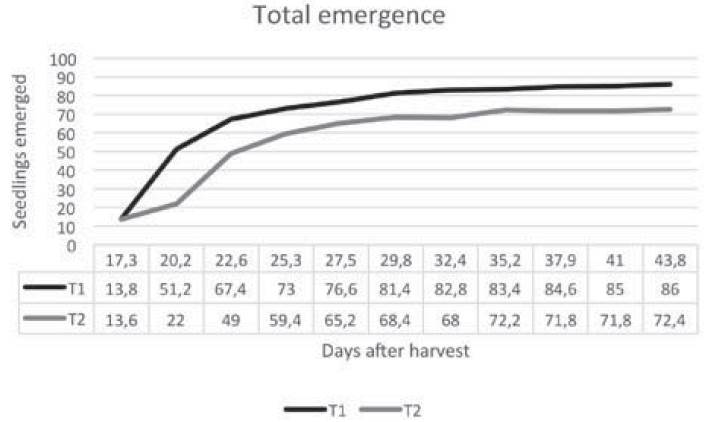Generate Php Key Pair From Seed
- Generate Php Key Pair From Seed Free
- Generate Php Key Pair From Seed Company
- Generate Php Key Pair From Seed List
- Generate Php Key Pair From Seed Company
- Generate Php Key Pair From Seed 2
I basically followed the instructions here How to generate mycelium addresses from the 12 words in python. So my code is similar: from bip32utils import BIP32Key from bip32utils import BIP32HARDEN from bip32utils import Base58 import os, bip39 strengthbits = 128 entropy = os.urandom(strengthbits // 8) walletgenerator = bip39.Mnemonic('english') mnemonic = walletgenerator.tomnemonic. I need to generate a CA (4096-bit RSA) and server keys for openvpn and I want them to be 'top quality'. Good entropy source for generating openssl keys. Ask Question. The the function should be force re-seeded or called again fresh with a new seed for each new key or random number being generated to guarantee that the same stream from.
Several tools exist to generate SSH public/private key pairs. The following sections show how to generate an SSH key pair on UNIX, UNIX-like and Windows platforms.
Yes, it is possible to deterministically generate public/private RSA key pairs from passphrases. For even passable security, the passphrase must be processed by a key-stretching function, such as Scrypt (or the better known but less recommendable PBKDF2), and salt (at least, user id) must enter the key-stretching function; the output can then be used as the seed material for the RSA key. Firstly, we need to get an extended public key. Open Electrum, click Wallet, then Master Public Key and copy the string. In Electrum 3.x, go to Wallet - Information - Master Public Key instead. Legacy address (p2pkh) Open your favorite text editor, create a file called generate.php, and copy & paste the following code. Aug 24, 2018 mbedtlsx509writecsrsetkey receives mbedtlspkcontext as parameter, which is the parsed key. You can store the key in DER or PEM format in a file and parse it into the context, or use the context as is. If you need the key for future use, you can either store it, or generate a new key pair every time. I hope this answers your question.
Generate Php Key Pair From Seed Free
Generating an SSH Key Pair on UNIX and UNIX-Like Platforms Using the ssh-keygen Utility
UNIX and UNIX-like platforms (including Solaris and Linux) include the ssh-keygen utility to generate SSH key pairs.
Generate Php Key Pair From Seed Company
- Navigate to your home directory:
- Run the ssh-keygen utility, providing as
filenameyour choice of file name for the private key:The ssh-keygen utility prompts you for a passphrase for the private key.
- Enter a passphrase for the private key, or press Enter to create a private key without a passphrase:
Note:
While a passphrase is not required, you should specify one as a security measure to protect the private key from unauthorized use. When you specify a passphrase, a user must enter the passphrase every time the private key is used.
The ssh-keygen utility prompts you to enter the passphrase again.
- Enter the passphrase again, or press Enter again to continue creating a private key without a passphrase:
- The ssh-keygen utility displays a message indicating that the private key has been saved as
filenameand the public key has been saved asfilename.pub. It also displays information about the key fingerprint and randomart image.
Generating an SSH Key Pair on Windows Using the PuTTYgen Program
The PuTTYgen program is part of PuTTY, an open source networking client for the Windows platform.

Generate Php Key Pair From Seed List
Generate Php Key Pair From Seed Company
- Download and install PuTTY or PuTTYgen.
To download PuTTY or PuTTYgen, go to http://www.putty.org/ and click the You can download PuTTY here link.
- Run the PuTTYgen program.
- Set the Type of key to generate option to SSH-2 RSA.
- In the Number of bits in a generated key box, enter 2048.
- Click Generate to generate a public/private key pair.
As the key is being generated, move the mouse around the blank area as directed.
- (Optional) Enter a passphrase for the private key in the Key passphrase box and reenter it in the Confirm passphrase box.
Note:
Advanced installer free. Jan 16, 2018 Advanced Installer Serial Key makes you capable of adding license key, trial period and serial number to register your application. By using this software tool, user can add predefined pre-requisites and conditions for their installer to run. Download and try Advanced Installer for free directly from us instead of using warez sites. It is much easier and there is no risk of infecting your computer with viruses, trojans, spyware and other malware often disguised as Advanced Installer cracks. With a valid license key you are also entitled to free help and product updates. The private key is used inside Advanced Installer to generate registration keys. There are two types of registration keys that can be generated: Short keys - The key consists of 70 printable characters. Advanced Installer with trusted keygen simplifies the process of building Windows Installer packages by providing a high-level and straightforward interface to the underlying technology. The program implements all Windows Installer rules, and with its simplicity, it makes a Windows Installer package in just a few minutes. Advanced Installer Keygen is a user-friendly and powerful Windows Installer application which is authoring enabling designers to produce reliable MSI packages which satisfy in place in the current Microsoft Windows logo certification tips. Very simple to build utilization of, useful, faster and lightweight simplifies the procedure of creating Windows Installer packages by offering an incredibly a simple.
While a passphrase is not required, you should specify one as a security measure to protect the private key from unauthorized use. When you specify a passphrase, a user must enter the passphrase every time the private key is used.
- Click Save private key to save the private key to a file. To adhere to file-naming conventions, you should give the private key file an extension of
.ppk(PuTTY private key).Note:
The.ppkfile extension indicates that the private key is in PuTTY's proprietary format. You must use a key of this format when using PuTTY as your SSH client. It cannot be used with other SSH client tools. Refer to the PuTTY documentation to convert a private key in this format to a different format. - Select all of the characters in the Public key for pasting into OpenSSH authorized_keys file box.
Make sure you select all the characters, not just the ones you can see in the narrow window. If a scroll bar is next to the characters, you aren't seeing all the characters.
- Right-click somewhere in the selected text and select Copy from the menu.
- Open a text editor and paste the characters, just as you copied them. Start at the first character in the text editor, and do not insert any line breaks.
- Save the text file in the same folder where you saved the private key, using the
.pubextension to indicate that the file contains a public key. - If you or others are going to use an SSH client that requires the OpenSSH format for private keys (such as the
sshutility on Linux), export the private key:- On the Conversions menu, choose Export OpenSSH key.
- Save the private key in OpenSSH format in the same folder where you saved the private key in
.ppkformat, using an extension such as.opensshto indicate the file's content.

Generate Php Key Pair From Seed 2
If you're using openssl_pkey_new() in conjunction with openssl_csr_new() and want to change the CSR digest algorithm as well as specify a custom key size, the configuration override should be defined once and sent to both functions:
<?php
$config = array(
'digest_alg' => 'sha1',
'private_key_bits' => 2048,
'private_key_type' => OPENSSL_KEYTYPE_RSA,
);
$privkey = openssl_pkey_new($config);
$csr = openssl_csr_new($dn, $privkey, $config);
?>
Although openssl_pkey_new() will accept the 'digest_alg' argument it won't use it, and setting the value has no effect unless you also set this value for openssl_csr_new(). The reason for this is that the $config array is acting as a drop-in replacement for the values found in the openssl.cnf file, so it must contain all of the override values that you need even if the function they're being sent to won't use them.
Also, if you change the 'digest_alg' to something like 'sha256' and still get an MD5 signed CSR check your openssl.cnf file to see whether the digest algorithm you want to use is actually supported.